
Derek and the Dominos was a short-lived English–American blues rock band formed in the spring of 1970 by singer-guitarist Eric Clapton, keyboardist-singer Bobby Whitlock, bassist Carl Radle and drummer Jim Gordon. All four members had previously played together in Delaney & Bonnie and Friends, during and after Clapton's brief tenure with Blind Faith. Dave Mason supplied additional lead guitar on early studio sessions and played at their first live gig. Another participant at their first session as a band was George Harrison, the recording for whose album All Things Must Pass marked the formation of Derek and the Dominos.
Clara Smith was an American classic female blues singer, billed as the "Queen of the Moaners", although she had a lighter and sweeter voice than many of her contemporaries. Clara Smith was not related to the singers Bessie Smith and Mamie Smith.

Layla and Other Assorted Love Songs is the only studio album by the English–American rock band Derek and the Dominos, released on 9 November 1970 as a double album by Polydor Records and Atco Records. It is best known for its title track, "Layla", which is often regarded as Eric Clapton's greatest musical achievement. The other band members were Bobby Whitlock, Jim Gordon, and Carl Radle (bass). Duane Allman played lead and slide guitar on 11 of the 14 songs.

"Layla" is a song written by Eric Clapton and Jim Gordon, originally recorded with their band Derek and the Dominos, as the thirteenth track from their only studio album, Layla and Other Assorted Love Songs (1970). Its contrasting movements were composed separately by Clapton and Gordon. The piano part has also been controversially credited to Rita Coolidge, Gordon's girlfriend at the time.
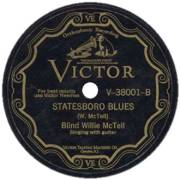
"Statesboro Blues" is a Piedmont blues song written by Blind Willie McTell, who recorded it in 1928. The title refers to the town of Statesboro, Georgia. In 1968, Taj Mahal recorded a popular blues rock adaptation of the song with a prominent slide guitar part by Jesse Ed Davis. His rendition inspired a recording by the Allman Brothers Band, which is ranked number nine on Rolling Stone magazine's list of the "100 Greatest Guitar Songs of All Time". In 2005, the Atlanta Journal-Constitution ranked "Statesboro Blues" number 57 on its list of "100 Songs of the South".
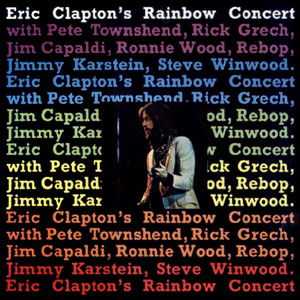
Eric Clapton's Rainbow Concert is a live album by Eric Clapton, recorded at the Rainbow Theatre in London on 13 January 1973 and released in September that year. The concerts, two on the same evening, were organised by Pete Townshend of the Who and marked a comeback by Clapton after two years of inactivity, broken only by his performance at the Concert for Bangladesh in August 1971. Along with Townshend, the musicians supporting Clapton include Steve Winwood, Ronnie Wood and Jim Capaldi. In the year following the two shows at the Rainbow, Clapton recovered from his heroin addiction and recorded 461 Ocean Boulevard (1974).

"Bell Bottom Blues" is a song written by Eric Clapton and Bobby Whitlock, and performed by Derek and the Dominos. It deals with Clapton's unrequited love for Pattie Boyd, the wife of his friend George Harrison, and appears on the 1970 double album Layla and Other Assorted Love Songs. Issued as a single, backed with "Keep on Growing", the song reached number 91 on the Billboard Hot 100 in 1971. A re-release backed with "Little Wing" peaked at number 78 on the same chart.

Live at the Fillmore is a live double album by Derek and the Dominos, recorded in two performances in October 1970 at the Fillmore East and released on 22 February 1994. It includes live material previously released on the In Concert album, live material previously released on Eric Clapton's Crossroads box set, and several previously unreleased numbers.
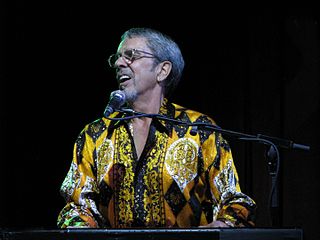
Robert Stanley Whitlock is an American singer, songwriter and musician. He is best known as a member of the blues-rock band Derek and the Dominos, with Eric Clapton, in 1970–71. Whitlock's musical career began with Memphis soul acts such as Sam & Dave and Booker T. & the M.G.'s before he joined Delaney & Bonnie and Friends in 1968. His association with Delaney & Bonnie bandmate Clapton led to Whitlock's participation in sessions for George Harrison's 1970 triple album All Things Must Pass, in London, and the formation of Derek and the Dominos that year. On the band's sole studio album, the critically acclaimed Layla and Other Assorted Love Songs, Whitlock wrote or co-wrote seven of the album's fourteen tracks, including "Tell the Truth", "Bell Bottom Blues" and "Why Does Love Got to Be So Sad?"

Delaney & Bonnie were an American duo of singer-songwriters Delaney Bramlett and Bonnie Bramlett. In 1969 and 1970, they fronted a rock/soul ensemble, Delaney & Bonnie and Friends, whose members at different times included Duane Allman, Gregg Allman, Eric Clapton, George Harrison, Leon Russell, Bobby Whitlock, Dave Mason, Steve Howe, Rita Coolidge, and King Curtis.
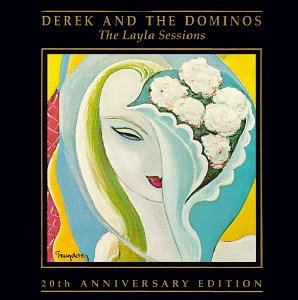
The Layla Sessions: 20th Anniversary Edition released September 1990 is an anniversary remix of the 1970 Layla and Other Assorted Love Songs album by Derek and the Dominos. The album contains the original album, remixed to improve audio quality, and, in the 3-CD edition, two extra discs of unused alternate and incomplete masters of the original songs and studio jamming. The box set was designed by Mitchell Kanner.
"Ain't Nobody's Business" is a 1920s blues song that became one of the first blues standards. It was published in 1922 by Porter Grainger and Everett Robbins. The song features a lyrical theme of freedom of choice and a vaudeville jazz–style musical arrangement. It was first recorded, as "'Tain't Nobody's Biz-ness if I Do", in 1922 by Anna Meyers, backed by the Original Memphis Five.

D&B Together is the sixth album by Delaney & Bonnie and Friends and their first for Columbia Records. It was their last album of new material, as Delaney and Bonnie Bramlett would divorce soon after its release.

Eric Clapton at His Best is a two-LP compilation of Eric Clapton's work after he left his earlier band Cream, released in September 1972. It was concurrently released with a two-LP compilation of Cream tracks, Heavy Cream, along with "at His Best" solo retrospectives by Cream's other members Jack Bruce and Ginger Baker.

"Key to the Highway" is a blues standard that has been performed and recorded by several blues and other artists. Blues pianist Charlie Segar first recorded the song in 1940. Jazz Gillum and Big Bill Broonzy followed with recordings in 1940 and 1941, using an arrangement that has become the standard.
"Tell the Truth" is a song by the English–American band Derek and the Dominos, released in 1970 as the eighth track on their album Layla and Other Assorted Love Songs. The song was composed primarily by keyboardist Bobby Whitlock, with guitarist Eric Clapton adding the last verse. The band recorded the track at Criteria Studios in Miami, Florida in August 1970, with Tom Dowd as their producer.
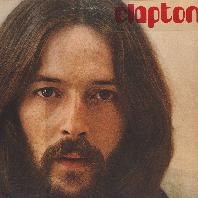
Clapton is a 1973 compilation album of Eric Clapton's early solo work. It was the second of two such compilations that Polydor Records would issue; the first, Eric Clapton at His Best, was released in late 1972.
"Nobody Loves You (When You're Down and Out)" is a song written by John Lennon released on his 1974 album Walls and Bridges. The song is included on the 1986 compilation Menlove Ave., the 1990 boxset Lennon, the 1998 boxset John Lennon Anthology, the 2005 two-disc compilation Working Class Hero: The Definitive Lennon, and the 2010 boxset Gimme Some Truth.
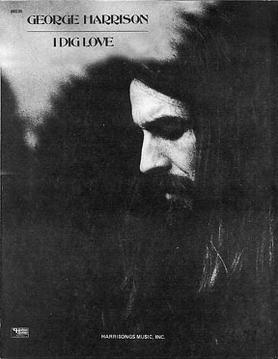
"I Dig Love" is a song by English rock musician George Harrison from his 1970 triple album All Things Must Pass. A paean to free love, it marks a departure from the more profound, spiritually oriented subject matter of much of that album. Musically, the song reflects Harrison's early experimentation with slide guitar, a technique that he was introduced to while touring with Delaney & Bonnie and Friends in December 1969.
"Anyday" is a song written by British rock guitarist and singer Eric Clapton and American singer-songwriter Bobby Whitlock for the Derek and the Dominos album Layla and Other Assorted Love Songs which was released in 1970. Over the years, the tune was newly interpreted by both Clapton and Whitlock who also released their takes on the song on both studio and live albums in 2003 and 2016.















